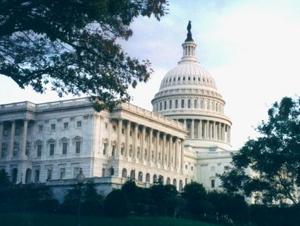Another stimulus package
Florida officials are bracing for what could amount to a two-billion-dollar hole in the state’s 66 billion dollar budget. The Legislature is required to fill that void. That could mean less money for students, the elderly and the poor.
Scott Pattison directs the National Association of State Budget Officers. He says everyone can expect to feel the pinch: "When it’s multi-billion dollars, everybody’s going to have to be affected, whether it’s universities or social services. I don’t think anyone can avoid being affected by the cuts this time."
Tara Klimek is with the Florida Department of Financial Services. She says the Florida Legislature needs to hold a special session to deal with lagging economy: "The legislature’s going to have to come back. They’re going to have to make some tough choices. They’re going to have to look at, you know, are we getting all the revenue we’re supposed to get. Are we making all the expenditures we need to make?"
The state has already taken drastic measures, including borrowing nearly 700 million dollars from the rainy day fund. Governor Charlie Crist cut six billion dollars in spending last year. He’s also enacted a 4 percent spending cut for all state agencies.
Michael Bird is with the National Conference of State Legislatures. He says Florida officials who want to cut spending are going about this all wrong: "When the economy goes sour we take actions that tend to make it worse. We lay people off, we don’t fill vacancies, we cut programs, we delay capital projects. We do things that actually work in reverse."
That’s why Bird wants Congress to enact a second stimulus package. He says it will create construction jobs to fix crumbling roads and bridges. That, in turn, could inject much needed revenue into the state through income and sales taxes. Sales taxes in Florida have dropped seven percent since last year.
The stimulus package could also include a federal loan to the state. Bird says that’s exactly what the federal government is there for: "This isn’t about preventing states from making budget cuts. What this does do, is when states don’t have the money, it is essential that the governments at all level fill in the gaps for the most vulnerable populations."
Raising taxes is never popular, and in today’s economic climate, Florida’s Klimek says it’s an even harder pitch: "Times are tough right now in Florida. People can’t afford to be taxed or to have fees and fines go up for government not being as efficient as it should be."
Scott Pattison agrees. He warns Floridians to brace for the worst: "When we had the downturn post 9/11 the housing sector was still strong. So people were still feeling wealthy with equity in their homes and you really only saw the decline in capital gains and revenue from the stock market returns."
That’s not the case today. Pattison says the declining housing market means higher unemployment, more foreclosures and less revenue from sales taxes. All that means fewer dollars go into state coffers.
That’s why officials in Tallahassee are pushing for the Congressional stimulus package. Michael Bird says it won’t fix the economy, but could get Florida through this crisis: "This isn’t the panacea but it is a very large band-aid for a very significant problem."
State officials are pressing lawmakers in Washington to look at their needs as they meet in the lame duck session. The Senate will debate a bail out to auto industry as well as an extension of unemployment benefits.
Peter Granitz, WLRN-Miami Herald News, filed this report for Capitol News Connection.
Created by Bureau Chief and Executive Producer Melinda Wittstock, Capitol News Connection provides insightful, localized coverage of participating stations’ congressional delegations.
We want to hear your feedback so we can keep improving our website, theworld.org. Please fill out this quick survey and let us know your thoughts (your answers will be anonymous). Thanks for your time!
